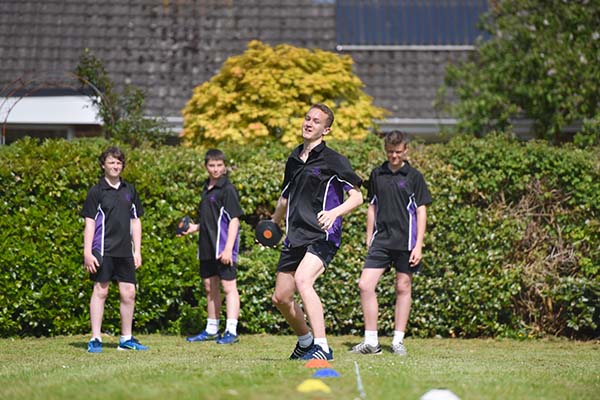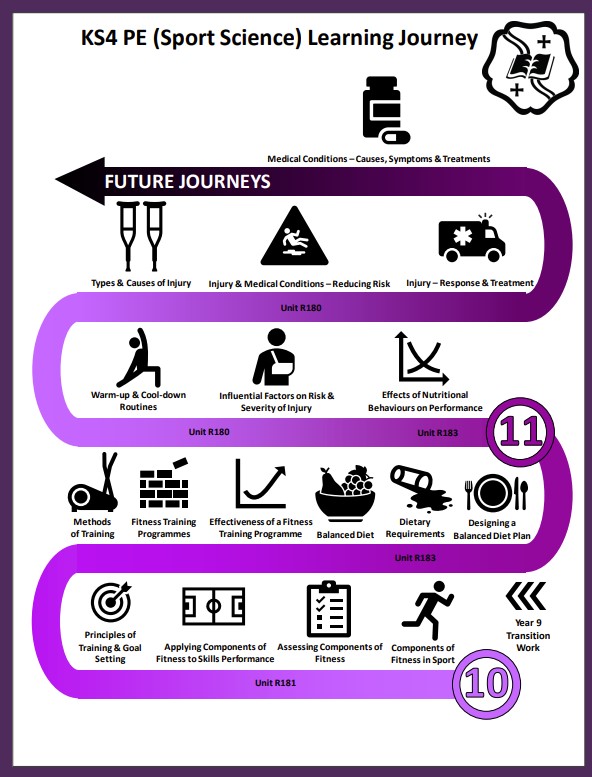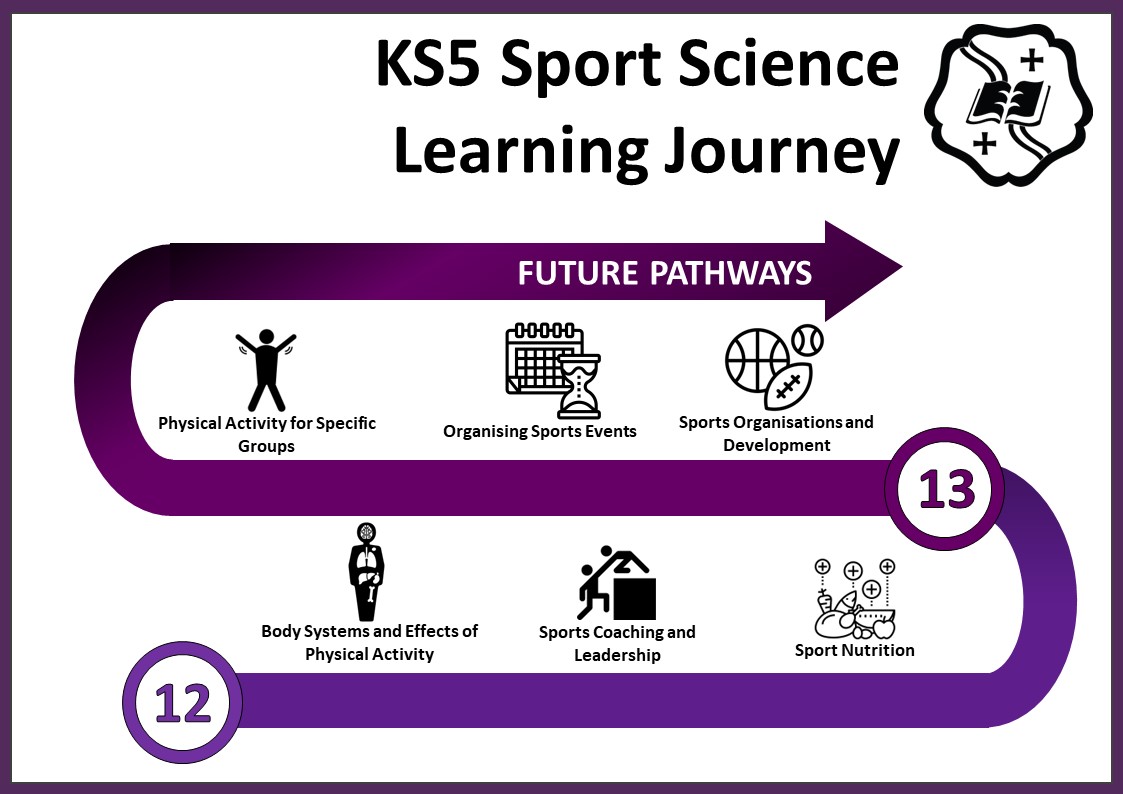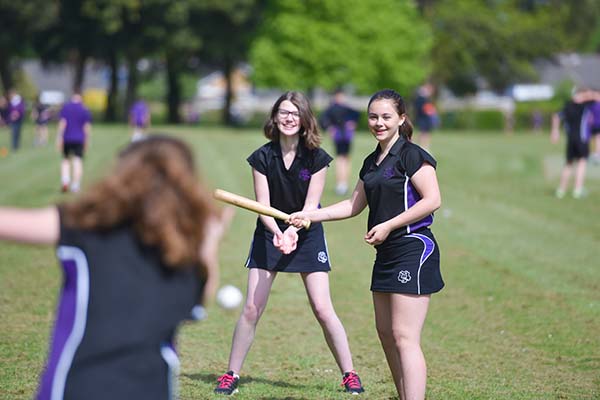
Our curriculum promotes inclusion, equality
and diversity through a broad, balanced and varied curriculum that is
progressive across all key stages.
Students learn skills and understanding by
participating in competitive experiences, purposeful skills-based practices and
fitness-based activities. Students also develop physical confidence, build on
their health, fitness and well-being and develop character values.
The curriculum also promotes the academic
aspect of PE through differentiated pathways preparing them for future
opportunities.
The Cambridge Nationals in Sport Science offer students the opportunity to study key areas of sport science including anatomy and physiology linked to fitness, health, injury and performance; the science of training and application of training principles, and psychology in sport and sports performance. They give students the opportunity to study sport without being assessed on their practical performance, however there are some practical elements to the course.
Exam Board: OCR
Qualification Title: Sport Science
Qualification Specification Code: J828
Qualification Webpage: Click here to visit the OCR webpage for the specification.
This course is designed with practical and engaging ways of learning and enable students to:
• Develop a range of skills through involvement in sport and physical activity in different contexts and roles
• Develop their ability to apply theoretical knowledge to practical situations
• Gain a better understanding of the complexity of different areas of sport and the sports industry
• Increase their awareness of different ways to stay involved in sport and physical activity and of different careers and roles within sport.
Students also develop their independent thinking, problem solving and analytical skills as well as their extended writing skills and IT skills.
The study of Sport Science opens up a range of possibilities for further study and also into careers associated with the subject.
An interest in physical activity and how the body responds to training and exercise is desirable. Good extended writing skills are desirable. Good IT skills are desirable.

Unit R180 – (40% weighting) External examination – 1 hour 15mins
Unit R181 - internally assessed coursework.
Unit R183 - internally assessed coursework.
• Sports Management
• Sport Coaching
• Healthcare
• Exercise and Health (eg personal trainer)
• Teacher training
• Sports Therapy (eg sports massage)
• Armed forces
• Nutrition
The Cambridge Technical Extended certificate is designed to follow on from the OCR Sport Science course, although is not a requirement for students to have followed this course. Learners will take six units made up of mandatory and optional units.
Our KS5 curriculum an academic curriculum which progresses learning from Key Stage 4 which is matched to our student intake profile and is delivered through the differentiated pathways of A Level and Cambridge Technical qualifications.
Our KS5 curriculum further promotes the academic aspects PE and Sport academic and vocational studies as in KS4. Literacy is further promoted through extended writing and extended oral work, combined with the use of more challenging key subject scientific, psychological and socio-cultural terminology. Progress made is regularly identified in learning through tracking and celebrated by sharing best work and by rewarding it through the rewards policy
The KS5 curriculum inspires and engages students whilst also equipping them with cultural capital successfully broadening horizons and preparing them for progression at 18, and for their future life as learners, employees and informed citizens in the field of sport, recreation and health.
Through KS2 primary links students participate in events that develop their planning, organisation and leadership skills.
Opportunities are available for students to develop into future leaders through subject ambassador roles and further promoting their subject as well as coaching and officiating younger students in extra-curricular activities.
Enrichment opportunities allow participation in a range of health, fitness and competitive activities, which help to support living a sustained active health lifestyle and to develop new interests which may be undertaken in future life.
Exam Board: OCR
Qualification Title: Sport - Cambridge Technical - Level 3 Extended Certificate
Qualification Specification Code: 05827
Qualification Webpage: Click here to visit the OCR webpage for the specification.
Standard Sixth Form entry requirements

Sports related
degrees, Sports Science, Coaching, Teaching, Physiotherapy, Sports Statistics,
Sports Psychologist, Recreational Management, Sport and Leisure Industry. This
qualification is not just about being able to play sport, it will provide
learners with the skills, knowledge and understanding to progress into Higher
Education on a sport-related programme.
Mrs Webber

Owned by: MDS | Last Published: 20/09/2019 09:53:36 | Next Update: N/A